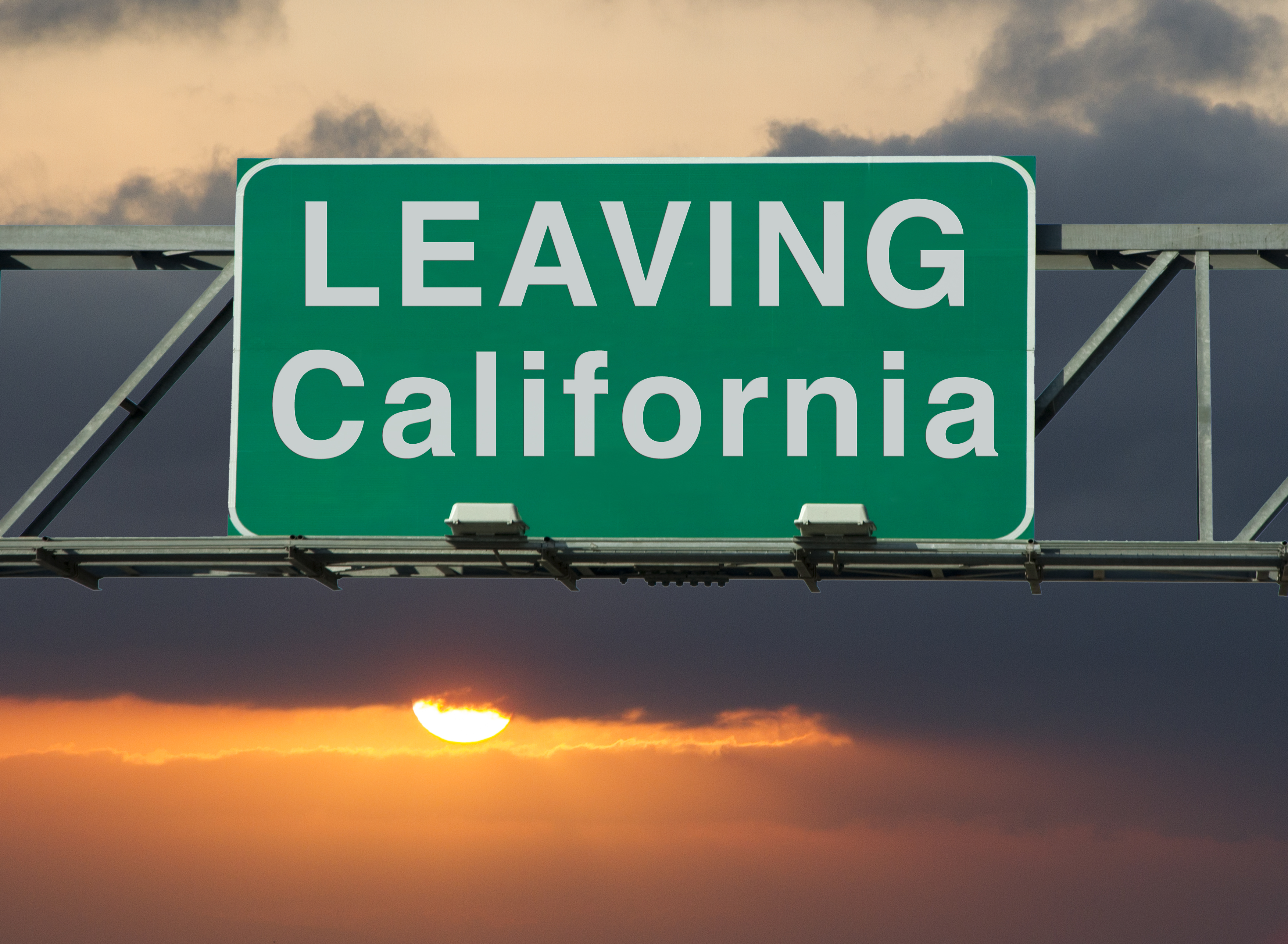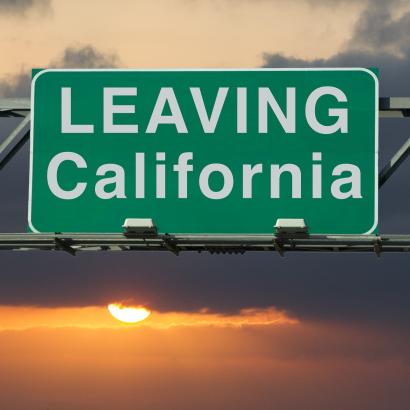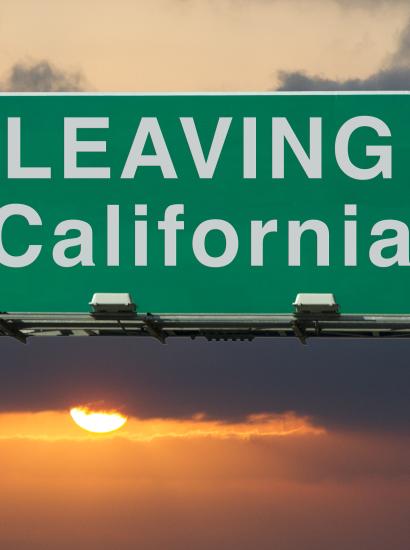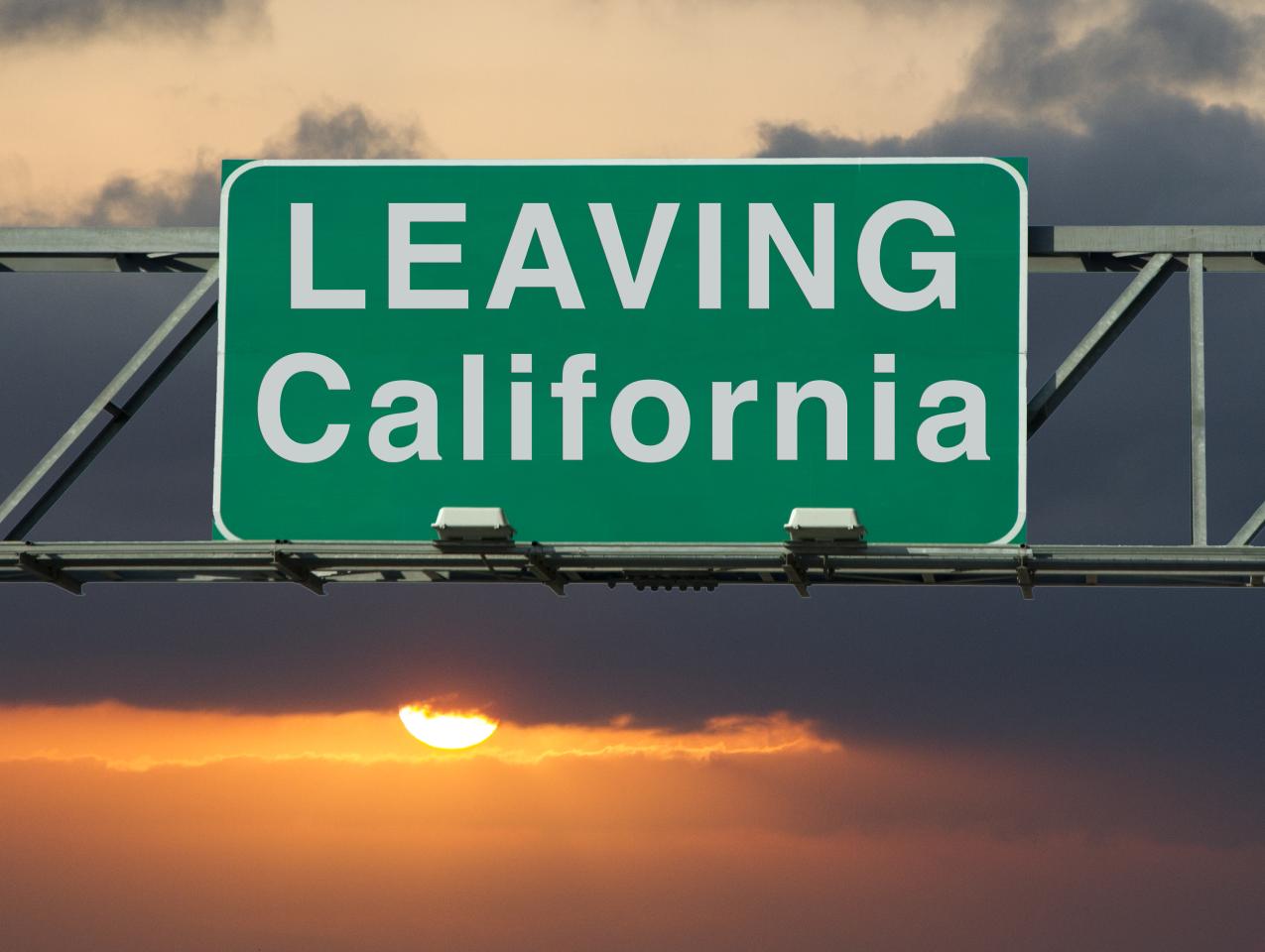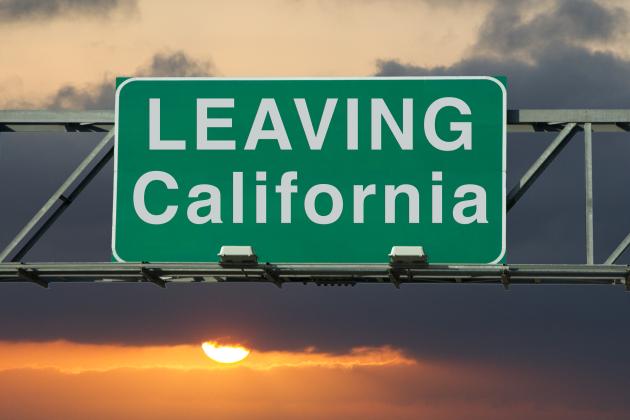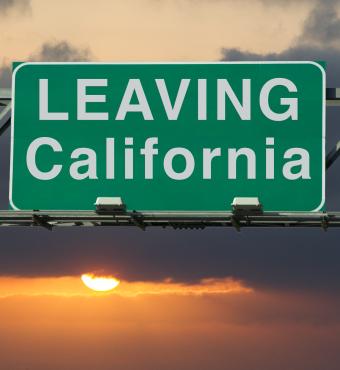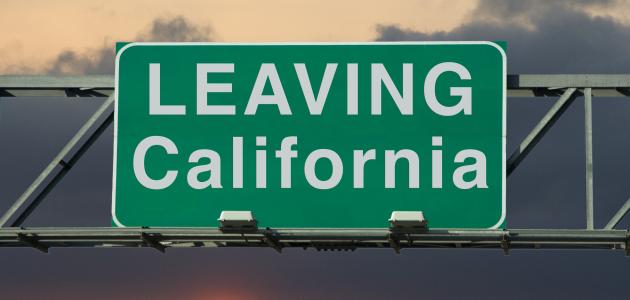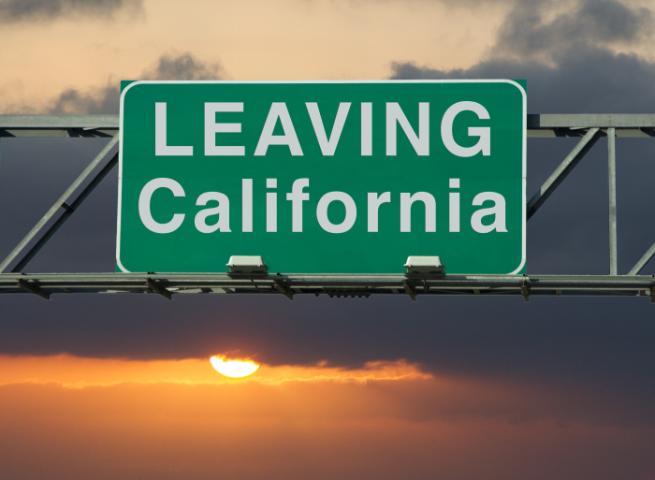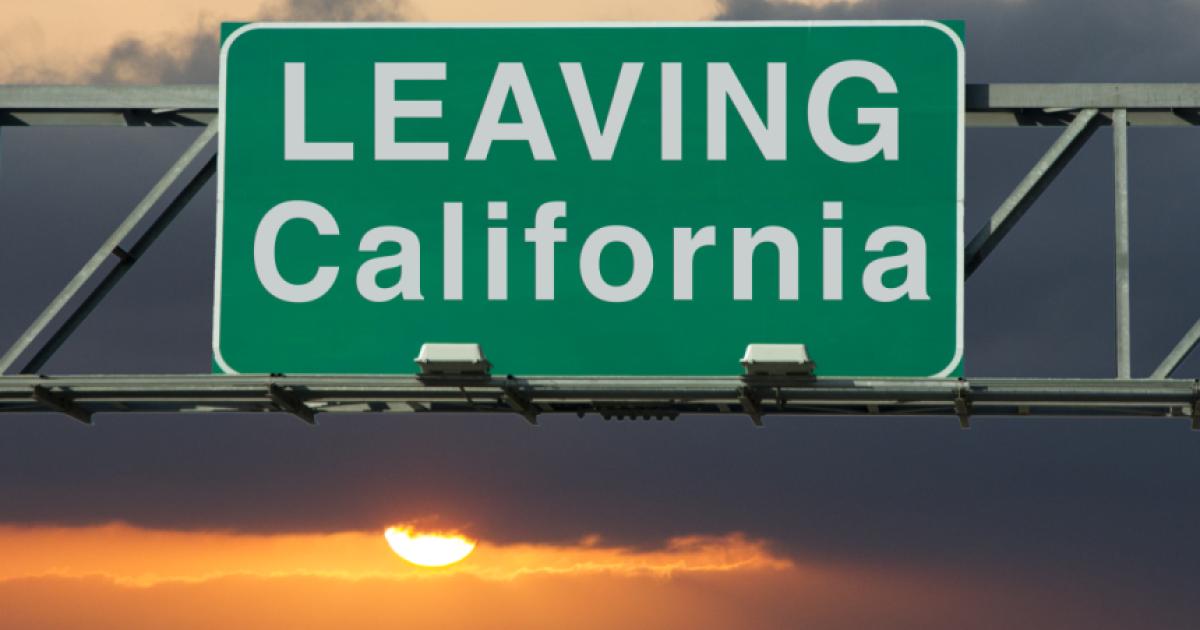As circumstance would have it, I was in Scottsdale, Arizona, last week for a two-day Hoover Institution retreat (hardship duty, I know, but someone has to do it).
My role in the proceedings: interviewing the mayors of nearby Phoenix and Mesa to ascertain what they’re doing in the way of job creation, housing, quality education, and public safety—i.e., how local governments operate smarter and more sensibly outside the California fishbowl.
Clearly, something is working in Arizona. That state’s Maricopa County added more new residents last year than any other county in the nation, per the US Census Bureau. Regional Phoenix—including Phoenix, Mesa, and Chandler—was second only to the Dallas–Fort Worth metroplex in population increase.
In case you’re curious as to which US county experienced the greatest net domestic loss in 2021: Los Angeles County, which bid adieu to nearly 180,000 residents. It’s part of a greater “CalExodus” that has residents of the Golden State relocating to other states for all sorts of reasons: a lack of affordable housing (or so claims Los Angeles’s beleaguered mayor), government overregulation (cannabis growers, for example, lighting out for conservative Oklahoma, of all places), plus a new era of remote work that may continue despite the shift from a pandemic to endemic lifestyle.
If media reports are to believed, the number of exiting Californians may grow by four more in the near future if a couple of Golden State notables and their progeny decide to set up shop on America’s East Coast. Those would be Harry and Megan, the Duke and Duchess of Sussex ,who reportedly are looking at property on the East Side of Manhattan—presumably, to be closer to the United Nations and like-minded globalist do-gooders.
If so, it will mark a relatively brief stay in California for the ex-pat and the ex-actress. The sidelined “senior royals” set up shop in a Los Angeles mansion in early 2000, the first American stop on their splashy “Megxit” from the UK before dropping a reported $14.7 million for a mansion in upscale Montecito (north of Los Angeles, in seaside Santa Barbara County), which also happens to be a primary and secondary address for many a Hollywood celebrity.
The problem for the Sussexes: despite their proximity to America’s entertainment epicenter, they haven’t achieved insider status. Perhaps one reason why: not a lot of intermingling with their fellow beautiful people. The duke and duchess reportedly were invited to this year’s Academy Awards ceremonies but took a pass (by not attending, Harry steered cleared of a much-nominated film depicting his mother’s troubled life).
Even if bruised egos are one reason for a royal change of heart, it shouldn’t come as a total surprise were Harry and Megan to trade in the Golden State for the Empire State. In fact, it fits in line with this analysis showing San Franciscans relocating to similarly progressive locales (eight of the ten states that saw the biggest increases for move-ins from San Francisco during the pandemic voted for Joe Biden in 2020). The most popular destination: New York State.
I have another theory as to why the Sussexes haven’t clicked with Hollywood and California—in Harry’s words, his home “for the time being”—as they might’ve anticipated: they’re not workers.
Look closely at the Sussexes’ lucrative deals with Netflix and Spotify and you’ll see plenty of zeroes—and precious little in the way of streaming content. By contrast, consider a not-so-royal family living about an hour’s drive to the east of Montecito—literally, on the road to Hollywood. That would be the Calabasas-residing Kardashians, an attention-seeking band of millionaires and billionaires who recently launched a “documentary style” series on Hulu (this, after 20 seasons of choreographed reality on cable television) because, in the family matriarch’s words, “money matters.”
The Kardashians have been relentlessly industrious for the past 15 years—with forays into clothing, fragrances, lifestyle choices, modeling, a line of boutique stores, plus the aforementioned long run on television. Indeed, hard work and doing her homework has paid off for one family member, Kim Kardashian, who passed California’s “baby bar” last December and has talked about opening a law firm (time will tell if she follows in her father’s footsteps and wades into celebrity double-homicides).
Granted, the Kardashians aren’t the ideal avatars for Harry and Megan (it all began with a sex tape leaked a couple of decades ago, you might recall). However, there is a second business model that the Sussexes might want to study. And, as it turns out, it’s less than a 15-mile drive from their Montecito residence—fittingly, in the opposite direction of Hollywood.
That undertaking: a Chick-fil-A franchise in downtown Santa Barbara that has locals clamoring for both fast food and a fast bureaucratic solution to snarled traffic.
Why should Harry and Megan—champions of a plant-based diet and rescuers of oppressed poultry—take notice of a business notable for its chicken sandwiches and nuggets?
For openers, there’s the question of public demand. Chick-fil-A earns more per restaurant than any other fast-food company in America—impressive in that all locations nationwide are closed on Sundays (more on that in a moment). One doubts there will be prolonged appetite for Sussex sustenance defined by two traits: unabashed wokeness and a willingness to toss relatives under a double-decker bus with slanderous innuendo.
Chick-fil-A’s second teachable moment: values matter—and beliefs shouldn’t be compromised to appease or cater to the mob.
The company doesn’t do business on Sundays (out of respect to its workforce). Despite past complaints that Chick-fil-A donates to groups and charities perceived as anti-gay, the company doesn’t embark on apology tours. The closest Chick-fil-A gets to the daily toxicity of American politics: Republicans blaming the Biden administration for a supply-chain crisis that prompted a sauce shortage in local restaurants. As opposed to the Sussex way, which was to beseech Democratic leaders of Congress last fall for paid family leave (the duchess’s letter to Nancy Pelosi and Chuck Schumer notable both for the unusual royal intrusion into American politics, plus her claim that she grew up disadvantaged in Los Angeles despite attending private schools — paid for in part by her father having won $750,000 in the California State Lottery
Perhaps this column ends up having it wrong and Harry and Megan decide to tough it out in California. If so, they might want to consider a more local approach to addressing life’s frustrations. For example, about a mile from their Montecito mansion, the Sussexes will find a heated argument between their fellow homeowners and county government over parking and access to a popular hiking trail.
Sure, it’s not to be confused with saving the climate or a greater world vision, but playing peacemaker for Montecito’s warring factions (pu-erh tea and vegan scones, anyone?) would provide the retired royals with something rare in their California existence: making an actual difference in their adopted habitat.







